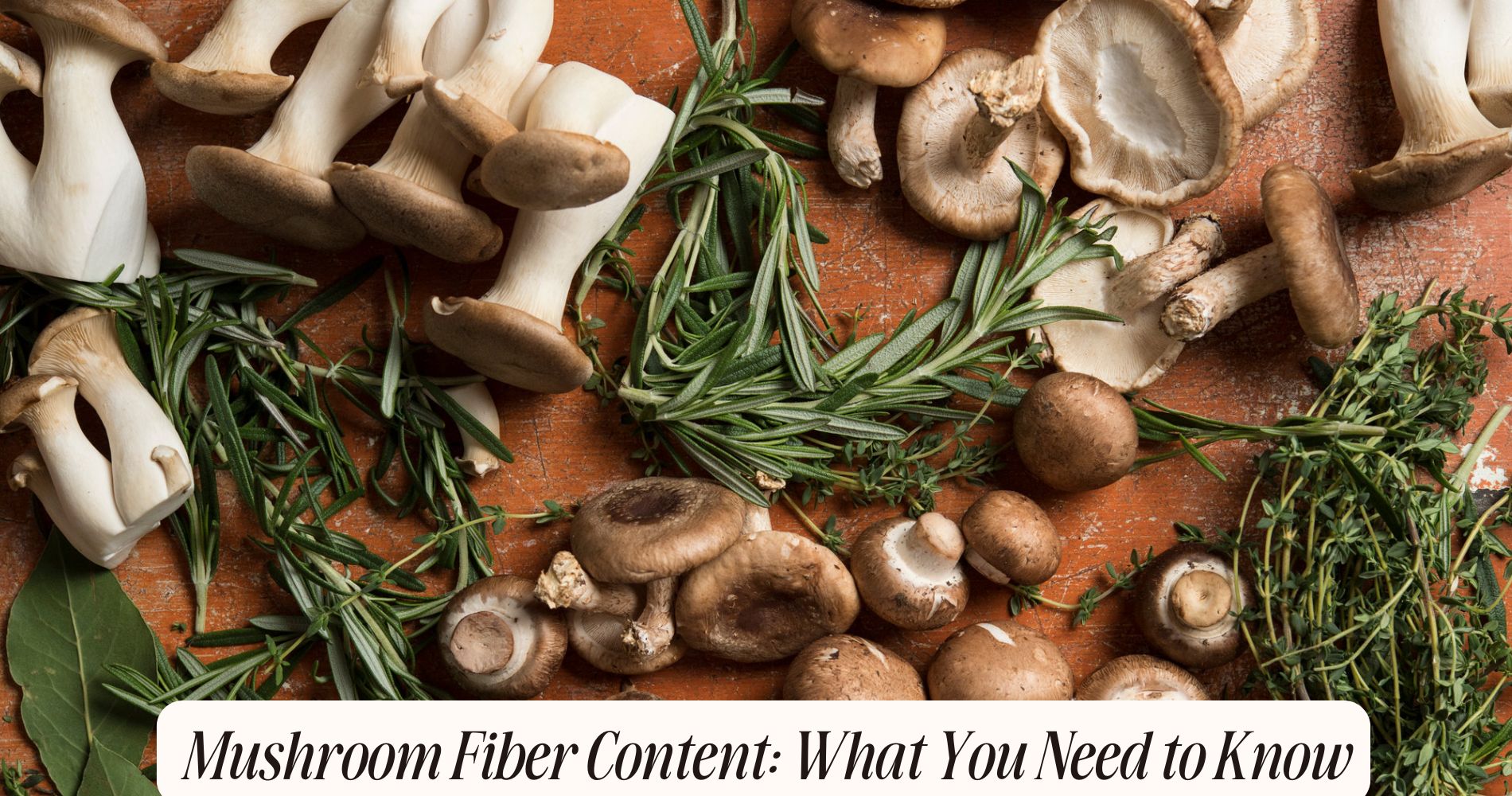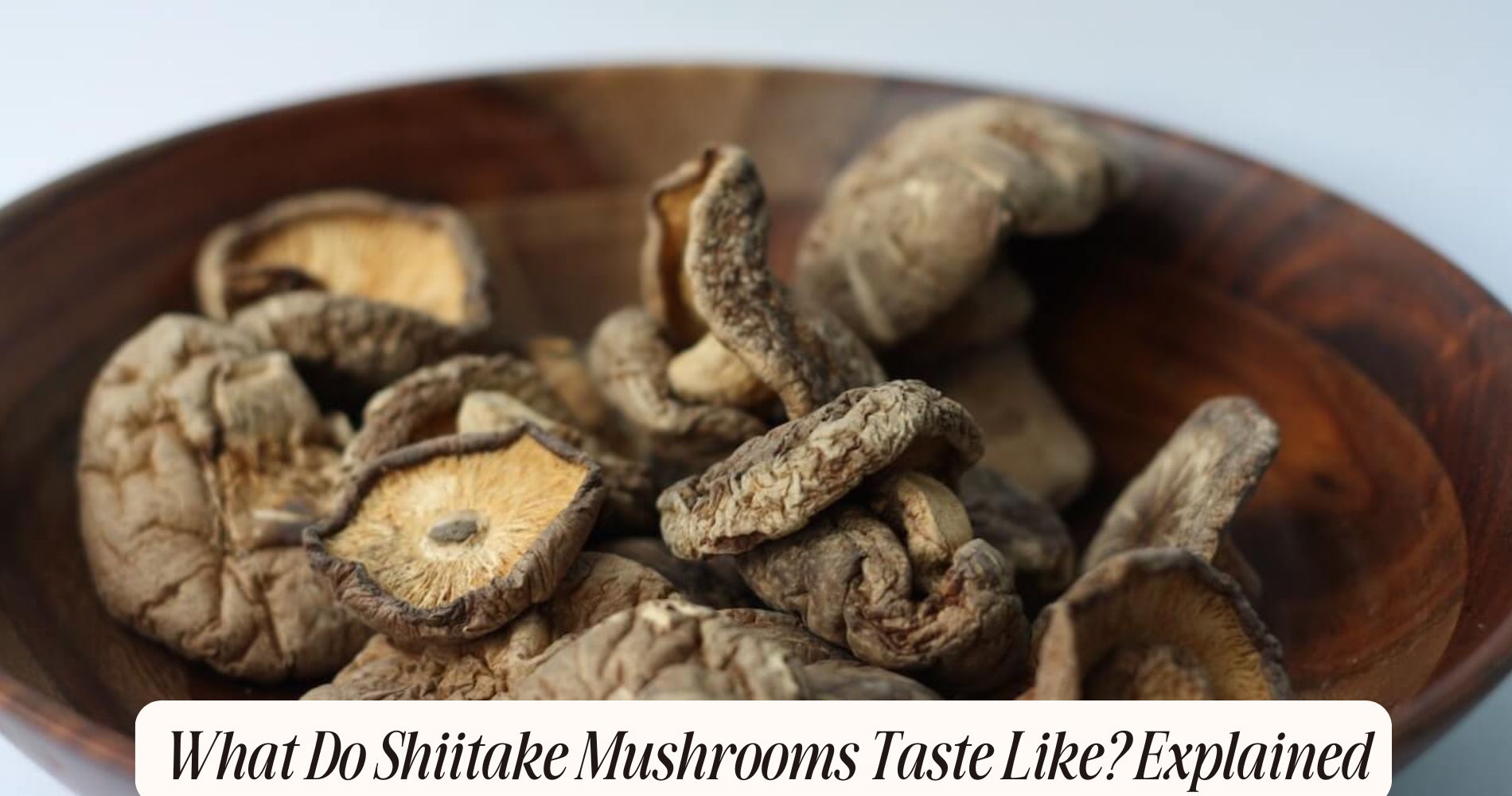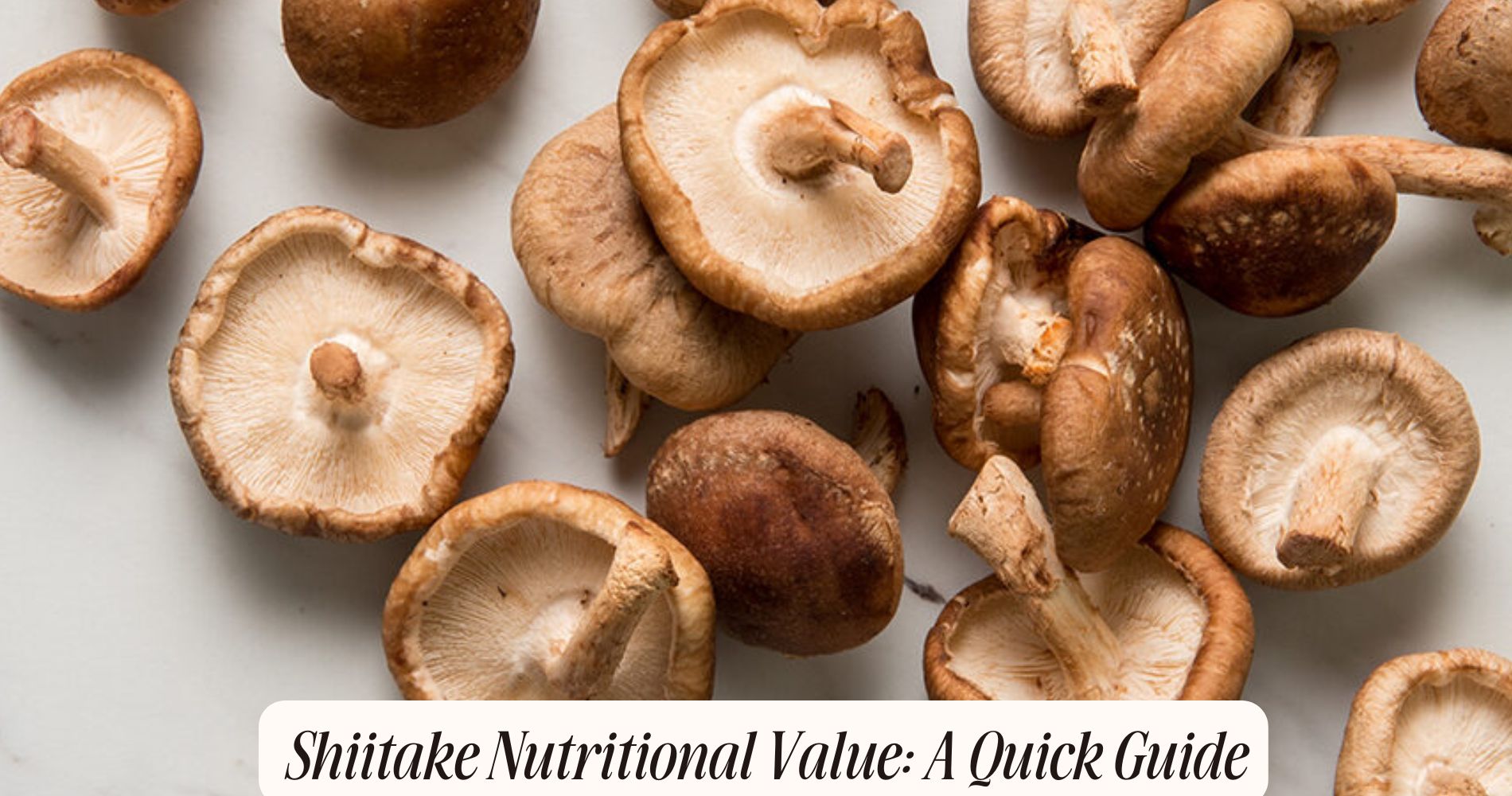
Mushroom Fiber Content: What You Need to Know
Mushroom fiber content offers a powerful blend of both soluble and insoluble fibers, promoting better digestive health. Soluble fiber helps control cholesterol and blood sugar, while insoluble fiber aids in regularity and supports a healthy gut microbiome. This unique fiber combination can also support weight management by keeping you full longer without adding excessive calories. Adding mushrooms to your meals is easy—whether you sauté, roast, or use them in soups, they provide a versatile and nutritious boost. Discover the health benefits of different mushroom varieties and cooking methods to enhance your diet.
Understanding Mushroom Fiber
Mushroom fiber, often overlooked, plays a significant role in nutrition and sustainability. When you explore different mushroom varieties, you'll find that they're not just a tasty addition to your meals but also a valuable source of dietary fiber. This fiber is essential for maintaining a healthy digestive system, and it can help regulate blood sugar levels and support heart health.
Incorporating mushrooms into your diet allows you to diversify your fiber sources. Unlike traditional fiber sources like grains or legumes, mushrooms provide unique soluble and insoluble fibers, which contribute to your overall fiber intake. Varieties such as shiitake, portobello, and oyster mushrooms are particularly rich in these beneficial fibers, making them excellent choices for health-conscious eaters.

Moreover, the fiber found in mushrooms can enhance satiety, helping you feel full longer and potentially aiding in weight management. By including a variety of mushrooms in your meals, you're not only boosting your nutrient intake but also supporting sustainable agriculture, as mushrooms require fewer resources to grow compared to conventional crops.
Embracing mushroom fiber can lead to a healthier lifestyle while contributing positively to the environment.
Types of Fiber in Mushrooms
Mushrooms contain both soluble and insoluble fiber, each playing a distinct role in your diet.
Soluble fiber can help lower cholesterol and stabilize blood sugar levels, while insoluble fiber aids in digestion and promotes regularity.
Understanding these types of fiber can help you make informed choices about incorporating mushrooms into your meals.
Soluble Fiber Benefits
Discovering the benefits of soluble fiber found in various mushrooms can greatly enhance your dietary choices. Soluble fiber dissolves in water, forming a gel-like substance that can help regulate digestion and stabilize blood sugar levels. When you include mushrooms in your meals, you're not just adding flavor; you're also reaping the health benefits associated with this type of fiber.
One significant advantage of soluble fiber is its ability to lower cholesterol levels. Research shows that soluble fiber can bind to cholesterol in your digestive system, promoting its excretion and potentially reducing your risk of heart disease.
Additionally, this fiber type aids in controlling blood sugar levels, making it beneficial for those managing diabetes.
Mushrooms, like shiitake and oyster varieties, are excellent sources of soluble fiber. By incorporating them into your diet, you can support gut health and promote the growth of beneficial gut bacteria.
This can lead to improved overall digestive health, further emphasizing the importance of soluble fiber in your diet. Make mushrooms a regular part of your meals to take advantage of these impressive health benefits.
Insoluble Fiber Role
Often overlooked, insoluble fiber plays an essential role in your digestive health, and many mushrooms are excellent sources of this fiber type. It primarily aids in promoting regular digestive transit by adding bulk to your stool, which helps prevent constipation. Including a variety of mushroom types—such as shiitake, portobello, and white button—in your diet can greatly enhance your fiber intake.

Insoluble fiber supports a healthy gut microbiome by providing the necessary environment for beneficial bacteria to thrive. These fibers act as prebiotics, feeding the good bacteria that contribute to overall gut health. By incorporating different mushroom varieties into your meals, you're not only diversifying your fiber sources but also achieving a better dietary balance.
The health benefits of insoluble fiber don't stop there. It's linked to reduced risks of certain digestive disorders and may help in weight management by promoting a feeling of fullness.
To reap the most advantages, aim for a mix of both soluble and insoluble fibers in your diet, ensuring you get the full spectrum of health benefits that mushrooms can offer.
Nutritional Benefits of Mushroom Fiber
Mushroom fiber offers several nutritional benefits that can enhance your overall health.
It supports digestive health by promoting regularity, aids in weight management by keeping you feeling full longer, and improves nutrient absorption, ensuring your body gets the most from your food.
Incorporating mushroom fiber into your diet can be a simple yet effective way to boost these essential functions.
Digestive Health Improvement
Improved digestive health is a significant benefit of incorporating mushroom fiber into your diet. Mushroom fiber acts as a prebiotic, promoting the growth of beneficial gut flora. This is essential for maintaining a balanced microbiome, which plays a key role in digestion and overall health.
When you consume fermented mushrooms, you're not just adding fiber; you're also introducing live cultures that can enhance gut health further.
Studies have shown that a diverse gut flora can lead to improved digestion, reduced bloating, and even better nutrient absorption. The soluble fiber found in mushrooms helps regulate bowel movements, making it easier for your body to eliminate waste.
Additionally, mushroom fiber can help manage symptoms of gastrointestinal disorders by soothing inflammation in the digestive tract.
Weight Management Support
Incorporating mushroom fiber into your diet can also play a vital role in weight management. One of the key benefits of mushroom fiber is its low caloric density, meaning you can consume a larger volume of food without consuming excessive calories. This can help you feel fuller for longer, making it easier to maintain a calorie deficit if weight loss is your goal.
Mushroom fiber is also beneficial for appetite regulation. It contains soluble fiber, which slows digestion and promotes satiety. This means that when you include mushroom fiber in your meals, you're likely to experience reduced hunger levels throughout the day.

Studies show that meals rich in fiber can lead to a lower overall caloric intake, which is essential for effective weight management.
Moreover, adding mushrooms to your meals can enhance the nutritional profile without greatly increasing calorie counts. This allows you to enjoy flavorful dishes while supporting your weight management efforts.
Nutrient Absorption Enhancement
When you add mushroom fiber to your meals, you tap into a powerful ally for enhancing nutrient absorption. Mushroom fiber contributes to nutrient synergy, which means it helps your body absorb vitamins and minerals from other foods more effectively. This is especially important for nutrients like iron, calcium, and magnesium, which can be less bioavailable in certain diets.
Mushrooms are rich in beta-glucans, a type of soluble fiber that not only promotes gut health but also improves the absorption of essential nutrients. These fibers can help create a favorable environment in your digestive tract, fostering beneficial bacteria that further enhance nutrient uptake.
Unlike some other fiber sources, mushroom fiber is unique in its ability to work in harmony with various foods, increasing their nutritional value. Incorporating mushroom fiber into your diet can also help stabilize blood sugar levels, reducing the risk of spikes that can hinder nutrient absorption.
Impact on Digestive Health
The impact of mushroom fiber on digestive health is significant, as it offers a unique blend of soluble and insoluble fibers that promote regularity and overall gut function. This combination helps you maintain a healthy digestive system by ensuring smooth bowel movements and preventing constipation.
Mushroom fiber also plays an essential role in supporting your gut microbiome. The soluble fiber undergoes fermentation effects in the large intestine, where beneficial bacteria thrive and ferment these fibers into short-chain fatty acids.
These acids are important for gut health, as they nourish the cells lining the intestines and help reduce inflammation.
Moreover, a well-balanced gut microbiome can enhance your immune system and improve nutrient absorption. Including mushrooms in your diet may foster a diverse array of gut bacteria, which is critical for ideal digestive health.
Mushrooms and Weight Management
Mushrooms can be a powerful ally in weight management due to their low calorie count and high fiber content. Various mushroom varieties, such as portobello, shiitake, and white button mushrooms, offer you a nutritious way to add volume to your meals without packing on extra calories. This makes them an excellent choice for those looking to manage their weight effectively.

The high fiber content found in mushrooms acts as a significant factor in weight management. Fiber sources like mushrooms promote feelings of fullness, which can help curb those unwanted cravings. By incorporating more fiber into your diet, you're less likely to overeat, making it easier to stick to your weight goals.
Additionally, mushrooms are low in fat and sodium, making them a heart-healthy option that supports overall well-being. Their unique umami flavor can enhance dishes, allowing you to enjoy satisfying meals without excess calories.
When you choose mushrooms as part of your weight management strategy, you not only benefit from their nutritional profile but also enjoy versatility in cooking, helping to keep your meals interesting and enjoyable.
How to Incorporate Mushrooms
Incorporating mushrooms into your diet is both simple and rewarding. You can enhance your meals with their unique flavors and health benefits. Start by adding mushrooms to your favorite dishes. Sauté them with garlic and olive oil for a delicious side dish, or toss them into stir-fries for added texture and nutrition.
Explore various mushroom recipes to find what suits your palate. For instance, consider making a creamy mushroom risotto or a hearty mushroom soup. These dishes not only taste great but also pack a fiber punch, which can aid digestion and promote satiety.
Mushrooms also shine in salads. Try roasting them for a deeper flavor and then mixing them with greens, nuts, and a light vinaigrette. If you're a fan of pasta, don't hesitate to incorporate mushrooms into your sauces or as a topping.
Their culinary uses are practically limitless—stuff them with cheese or grains for appetizers, or blend them into smoothies for an unexpected health boost.
Choosing the Right Mushroom Varieties
When it comes to choosing the right mushroom varieties, understanding their unique flavors and textures can elevate your culinary experience. Different species offer distinct flavor profiles and texture differences that can greatly affect your dishes.
For example, shiitake mushrooms provide a rich, umami taste, while oyster mushrooms are known for their delicate texture and mild flavor.
Consider the culinary uses of each variety; portobello mushrooms are excellent for grilling, while button mushrooms are versatile for sautéing. Additionally, pay attention to seasonal availability and growing conditions, as these factors influence freshness and taste.
When foraging, guarantee proper species identification to avoid toxic varieties. Use reliable field guides or apps to aid in this process.
Cooking methods also play a key role in maximizing the health benefits of mushrooms. Sautéing or roasting can enhance flavors, while steaming preserves their nutritional content.
Discover the Ultimate Wellness Bundle by Well Gummies
If you're looking for an easy and convenient way to incorporate the benefits of mushrooms into your daily routine, the Ultimate Wellness Bundle by Well Gummies is the perfect solution. This all-in-one package includes our All-in-One Mushroom Gummies, designed to be taken every day like vitamins, and Lion's Mane Focus and Energy Gummies, perfect for whenever you need a natural boost. With 10 types of mushrooms, these vegan gummies help fuel your brain, energize your body, and support your immune system for a balanced body and clear mind.
Plus, they taste as delicious as fresh wild berries, giving you the energy you need without jitters or crashes—just smooth vitality to keep you shining all day. Make Well Gummies your go-to for daily performance and wellness!
Frequently Asked Questions
Are There Any Allergens Associated With Mushroom Fiber?
Yes, some people experience mushroom allergies or fiber sensitivities. If you're allergic to mushrooms, you should avoid mushroom fiber. Always consult with a healthcare professional if you suspect any adverse reactions to mushroom-based products.
How Does Mushroom Fiber Compare to Plant-Based Fibers?
Mushroom fiber offers unique benefits compared to traditional plant-based fibers. It's rich in beta-glucans and can enhance gut health. You'll find mushroom fiber sources in products like supplements and functional foods, providing diverse dietary options.
Can Mushroom Fiber Aid in Blood Sugar Regulation?
Mushroom fiber can aid in blood sugar regulation due to its low glycemic index and unique fiber types. Incorporating it into your diet may help stabilize blood sugar levels, promoting better overall metabolic health.
What Are the Environmental Benefits of Mushroom Fiber Production?
Mushroom fiber production offers significant environmental benefits through sustainable sourcing and waste reduction. By utilizing agricultural byproducts, you help minimize waste and promote resource efficiency, contributing to a healthier planet and supporting eco-friendly practices.
Is Mushroom Fiber Safe for Children and Pregnant Women?
Mushroom fiber's generally safe for children and pregnant women, providing nutritional benefits and digestion support. Always consult a healthcare provider before introducing new fibers into their diets to guarantee it meets their specific health needs.
Conclusion
Incorporating mushrooms into your diet can greatly enhance your fiber intake, benefiting your digestive health and supporting weight management. With various types of fiber present in mushrooms, you can enjoy their nutritional advantages while savoring diverse flavors. By choosing the right varieties and finding creative ways to include them in your meals, you'll not only improve your overall health but also make your dishes more delicious. So, don't hesitate—start adding mushrooms to your plate today!




